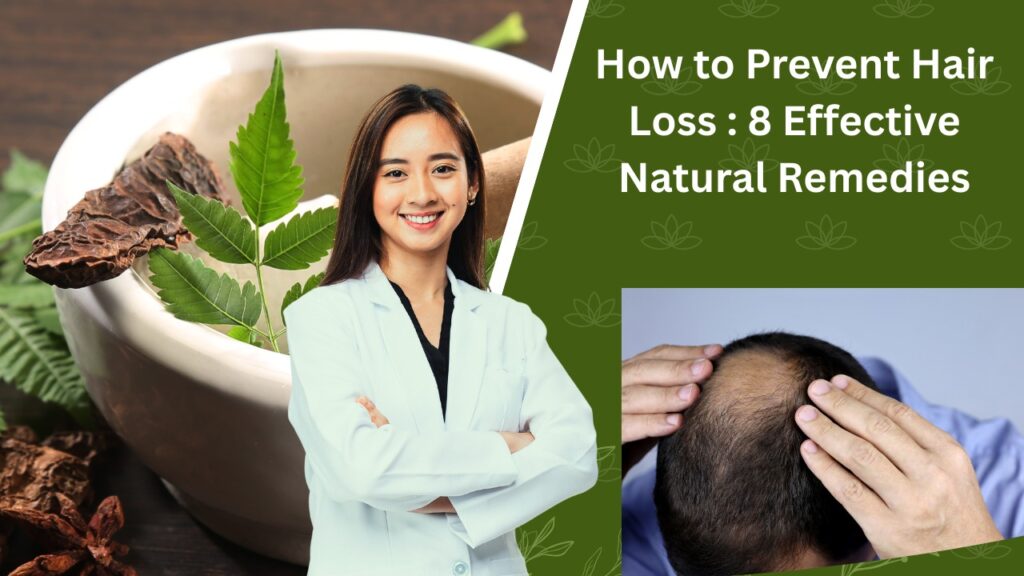Hair loss is a common problem that affects both men and women, regardless of age. It can begin with a few strands falling out daily and may gradually lead to visible thinning. This issue not only changes your appearance but can also lower your confidence and affect your mental well-being.
The good news is, you don’t always need to rely on costly treatments or harsh chemical products to deal with hair loss. In many cases, simple lifestyle changes and natural methods can offer great results. Taking good care of your scalp and using gentle, nourishing solutions can make a real difference.
Home remedies like oil massages, proper nutrition, and herbal rinses can support healthy hair growth and reduce shedding. These natural solutions are safer and often more effective in the long run. By focusing on daily hair care habits, you can take control of hair loss and promote stronger, healthier hair.
In this comprehensive guide, we’ll explore the major causes of hair loss, offer essential lifestyle tips to maintain healthy hair, and reveal the top 8 natural home remedies that you can try today to prevent hair loss and boost your hair’s health.
Understanding Hair Loss
Hair loss, medically called alopecia, happens when hair falls out from the scalp or other parts of the body. While it’s normal to lose about 50 to 100 hairs each day, losing more than that or noticing visible thinning or bald spots could point to a deeper problem.
Several factors can cause hair loss, including stress, poor nutrition, hormonal imbalances, or certain health conditions. Even hairstyles that pull tightly or frequent use of harsh hair products can weaken hair and lead to breakage over time. Understanding the cause is important when looking for effective ways to manage and treat the issue.
If you’re wondering how to prevent hair loss, start with healthy habits. Eating a balanced diet, staying hydrated, and avoiding heat styling can make a big difference. Scalp massages, gentle hair care routines, and using natural oils can also help keep your hair strong. Making small changes in your routine is often the first step in learning how to prevent hair loss naturally.
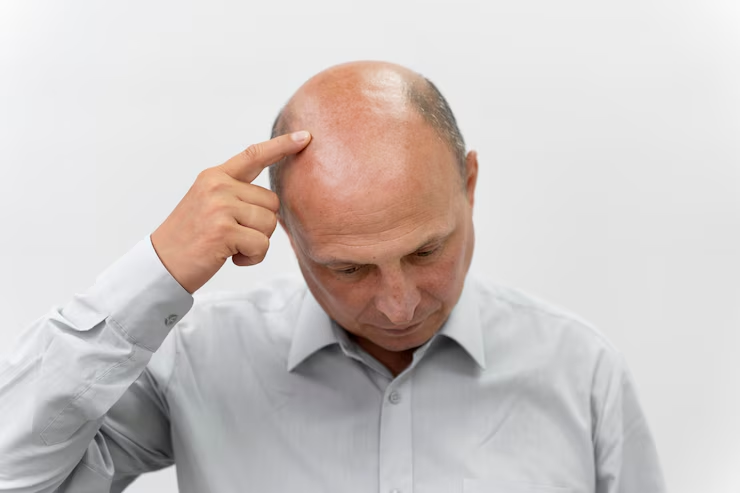
Common Causes of Hair Loss
Genetics: Hereditary-pattern baldness is the most common cause.
Hormonal Imbalances: Conditions like thyroid disorders or PCOS can contribute.
Stress: Physical or emotional stress can trigger temporary hair loss.
Poor Nutrition: Lack of essential vitamins and minerals.
Medical Conditions: Autoimmune diseases, scalp infections, or illnesses.
Medications: Chemotherapy, antidepressants, and blood pressure drugs.
Hair Styling Practices: Excessive heat styling, tight hairstyles, and harsh chemicals.
How to Prevent Hair Loss Naturally
While you can’t change your genetics, you can adopt healthier practices and incorporate natural remedies into your routine to slow down or prevent hair loss.
Lifestyle Tips to Prevent Hair Loss
Follow a Balanced and Nutrient-Dense Diet: One of the most effective tips on how to prevent hair loss is maintaining a healthy diet. Hair strands are primarily made of a protein called keratin, which requires essential nutrients to grow strong and stay healthy. Nutrients such as iron, zinc, vitamin D, biotin, omega-3 fatty acids, and high-quality proteins play a crucial role in supporting hair growth. To nourish your hair from within, regularly consume dark leafy vegetables like spinach and kale, nuts and seeds, protein-rich foods like eggs and lean meats, omega-rich fish such as salmon, whole grains, and vitamin-packed fruits including berries, oranges, and avocados.
Effectively Manage Daily Stress: Understanding how to prevent hair loss also means learning to manage emotional and physical stress. Chronic stress can cause a condition called telogen effluvium, where hair follicles prematurely enter a resting phase, leading to noticeable hair shedding. Incorporating relaxation techniques like yoga, meditation, or deep breathing exercises into your routine can help. Engaging in regular physical activity, ensuring adequate rest, and taking mindful breaks throughout the day also help protect hair health.
Handle Hair with Extra Care: Another key aspect of how to prevent hair loss is adopting gentle hair care practices. Avoid pulling your hair tightly into styles such as ponytails or braids, as these can cause tension and lead to hair breakage or traction alopecia. Limit the use of heat styling tools and allow your hair to dry naturally when possible. Use a wide-toothed comb to gently detangle wet hair and minimize unnecessary breakage.
Select Hair Care Products Thoughtfully: Choosing the right products is essential in learning how to prevent hair loss. Many commercial shampoos and conditioners contain harsh chemicals like sulfates, parabens, and alcohol, which can strip the scalp of its natural oils and cause dryness or irritation. Instead, go for mild, sulfate-free shampoos and conditioners made from natural or organic ingredients. These are less likely to damage your scalp and can support a healthier hair environment.

Top Natural Home Remedies to How To Prevent Hair Loss
Now let’s dive into the heart of the article – 8 proven natural remedies that are simple, effective, and budget-friendly. These treatments nourish your scalp, improve blood circulation, and strengthen hair roots from within.
Coconut Oil Massage
Coconut oil is a natural remedy often recommended when learning how to prevent hair loss. It is rich in healthy fatty acids and essential vitamins that nourish the scalp and hair from the root. Regular use can strengthen hair strands and improve overall scalp health.
One of the unique benefits of coconut oil is its ability to penetrate deep into the hair shaft. This helps reduce protein loss, which is vital for maintaining strong and healthy hair. Protein is a key building block of hair, and its loss can lead to thinning and breakage over time.
Applying coconut oil as a hair mask or gentle scalp massage can keep your scalp moisturized and hair shiny. For anyone searching for simple, natural ways on how to prevent hair loss, coconut oil offers a safe and effective option that fits easily into your hair care routine.
How to use:
Warm 2–3 tablespoons of organic coconut oil.
Massage it gently into your scalp using your fingertips.
Leave it overnight or at least 1 hour before washing with a mild shampoo.
Repeat 2–3 times a week.
Tip: Add a few drops of rosemary or lavender essential oil for added benefits.
Aloe Vera Gel
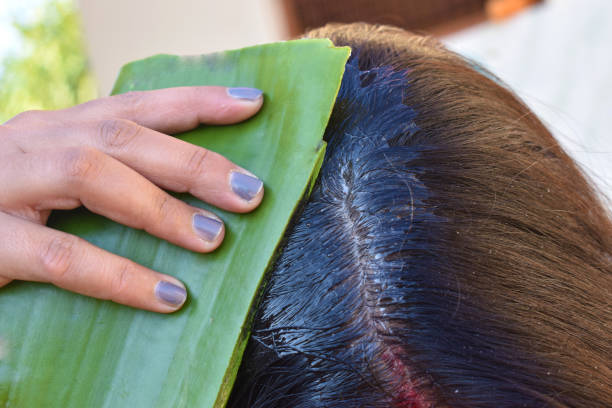
Aloe vera is a natural plant known for its soothing and healing properties. It contains special enzymes that help repair dead skin cells on the scalp, creating a healthier environment for hair to grow. This is especially helpful for people dealing with dryness or irritation, which can affect hair strength.
One important way aloe vera supports healthy hair is by balancing the scalp’s pH level. When the pH is out of balance, it can lead to problems like dandruff, itchiness, or excess oil. By calming the scalp and reducing flakes, aloe vera helps improve hair texture and allows hair to grow without blockages or irritation.
If you’re looking for natural methods on how to prevent hair loss, aloe vera can be a great choice. Its gentle action supports scalp health and strengthens hair over time. Adding it to your routine is a smart and simple step in learning how to prevent hair loss naturally and effectively.
How to use:
Extract fresh aloe vera gel from the leaf.
Apply directly to the scalp and massage gently.
Leave it on for 30–45 minutes and rinse with lukewarm water.
Use 2–3 times a week.
Bonus: Drinking aloe vera juice also improves internal health and can support hair growth.
Onion Juice
Onions are a powerful natural ingredient that can support stronger and healthier hair. They are rich in sulfur, a mineral that helps increase collagen production. Collagen plays a key role in forming hair structure, which makes hair grow stronger and reduces the chances of breakage.
Another benefit of using onion juice is that it improves blood circulation to the scalp. Better blood flow brings more nutrients and oxygen to the hair follicles, helping them stay active and healthy. This is especially helpful for those looking for ways on how to prevent hair loss and promote new hair growth naturally.
Onions also contain antibacterial properties that keep the scalp clean and free from infections, which can sometimes cause hair to fall. Applying onion juice regularly may help cleanse the scalp and strengthen the roots. If you’re wondering how to prevent hair loss using natural remedies, onions offer an effective and affordable solution worth trying.
How to use:
Blend one onion and strain the juice.
Apply the juice to your scalp using a cotton ball.
Leave it for 30–60 minutes, then rinse with a mild shampoo.
Use twice a week for best results.

Warning: The smell can be strong, but it usually fades after washing.
Fenugreek Seeds (Methi)
Fenugreek is a natural remedy that has been used for years to support hair health. It is packed with protein and nicotinic acid, both of which play a key role in strengthening the hair shaft. Stronger hair shafts mean less breakage, making fenugreek an excellent choice for those looking for ways on how to prevent hair loss.
The high protein content in fenugreek helps repair damaged hair and promotes healthier strands. Nicotinic acid, a form of vitamin B3, improves blood circulation to the scalp. This encourages new hair growth and ensures that the roots receive the nutrients they need to stay strong and active.
Using fenugreek seeds in hair masks or soaking them overnight and applying the paste to your scalp can nourish your hair naturally. If you’re exploring how to prevent hair loss using safe and simple methods, fenugreek offers a gentle yet powerful solution for long-term hair care.
How to use:
Soak 2 tablespoons of fenugreek seeds overnight.
Grind into a paste and apply to the scalp.
Leave for 30–40 minutes and rinse with cool water.
Use once or twice a week.
Optional: Mix with yogurt or coconut milk for added conditioning.
Green Tea Rinse
Green tea is a natural ingredient widely known for its health benefits, especially when it comes to hair care. It is rich in antioxidants that help protect hair follicles from damage. These antioxidants support the growth of new, healthy hair and help strengthen existing strands, making green tea a great option for those learning how to prevent hair loss.
One of the key benefits of green tea is its ability to reduce DHT, a hormone linked to hair thinning and hair loss. By lowering DHT levels, green tea helps protect hair follicles and encourages healthier growth. This makes it particularly useful for people dealing with hormonal hair loss.
Applying green tea directly to the scalp or drinking it regularly can offer long-term benefits for your hair. If you’re looking for natural solutions on how to prevent hair loss, adding green tea to your daily routine is a simple and effective step toward healthier hair.
How to use:
Brew 2 green tea bags in 1–2 cups of hot water.
Let it cool and pour over your scalp after shampooing.
Massage gently and leave for 10 minutes before rinsing.
Frequency: Use twice a week.
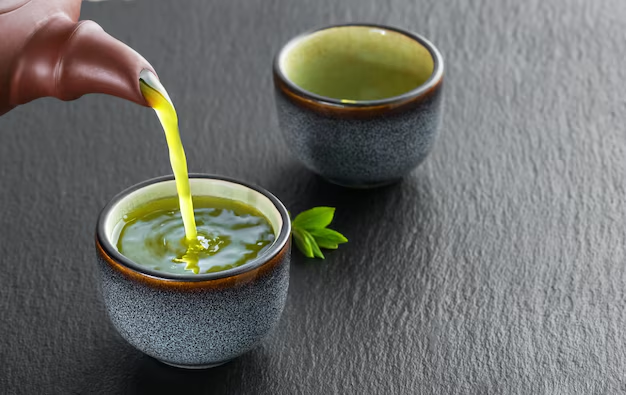
Amla (Indian Gooseberry)
Amla, also known as Indian gooseberry, is a powerful natural remedy for hair care. It is packed with vitamin C and strong antioxidants that help protect hair from damage caused by free radicals. These nutrients play a key role in improving scalp health and supporting stronger, thicker hair.
One of the main benefits of amla is its ability to strengthen hair follicles. By doing this, it reduces hair breakage and shedding. It also helps prevent premature graying and supports the natural color of your hair. For those wondering how to prevent hair loss naturally, amla offers a rich source of nourishment that works from the roots.
Whether used as a hair oil, powder, or juice, amla helps stimulate hair growth and keeps your scalp balanced. Including amla in your hair care routine is a smart step for anyone seeking natural ways on how to prevent hair loss and promote long-term hair health.
How to use:
Mix 1 tablespoon of amla powder with lime juice or coconut oil.
Apply the mixture to your scalp and hair.
Leave it on for 30 minutes, then rinse with a gentle shampoo.
Alternative: Drink amla juice daily for internal nourishment.
Castor Oil Treatment
Castor oil is a popular natural remedy that supports healthy hair growth. It is rich in ricinoleic acid and omega-6 fatty acids, which are known to improve blood circulation in the scalp. Better circulation means more oxygen and nutrients reach the hair follicles, helping them stay active and strong.
One of the key reasons castor oil is used in hair care is its ability to stimulate hair follicles. When applied regularly, it can help thicken hair, reduce breakage, and support overall scalp health. For anyone wondering how to prevent hair loss, castor oil offers a simple and affordable solution that works effectively over time.
Massaging castor oil into the scalp once or twice a week can deeply nourish the roots and promote hair growth. Its thick texture also helps lock in moisture, which adds to hair strength and shine. Using castor oil is a smart step for those looking to learn how to prevent hair loss naturally and gently.
How to use:
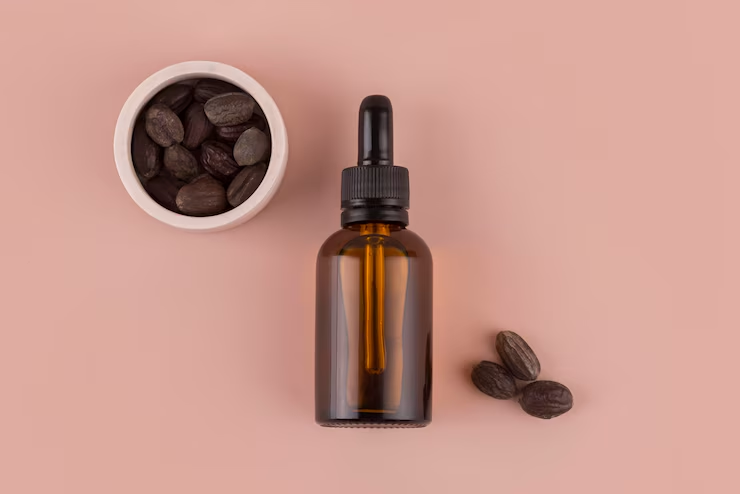
Warm 2 tablespoons of castor oil and mix with coconut or olive oil (optional).
Massage into your scalp and cover with a hot towel.
Leave overnight or at least 1 hour before washing.
Note: Use once a week for stronger, thicker hair.
Egg Mask
Eggs are a great natural source of nutrients that support strong and healthy hair. They are rich in proteins, biotin, and sulfur—key elements needed to nourish the scalp and strengthen hair from the roots. These nutrients help repair damaged strands and encourage the growth of healthier hair over time.
Using eggs in your hair care routine can improve texture and add a natural shine. The proteins work to rebuild weak areas in each strand, while biotin supports thicker growth. For those looking to learn how to prevent hair loss, eggs provide a powerful combination of nutrients that tackle hair thinning and breakage.
Egg masks can be easily made at home and applied once a week to restore moisture and strength. Whether used alone or mixed with other ingredients like olive oil or yogurt, eggs are an affordable and effective choice for anyone exploring how to prevent hair loss using natural remedies.
How to use:
Beat one or two eggs and add olive oil or honey.
Apply the mixture from scalp to ends.
Leave it for 20–30 minutes and rinse with cold water and mild shampoo.
Caution: Avoid hot water to prevent the egg from “cooking” in your hair.
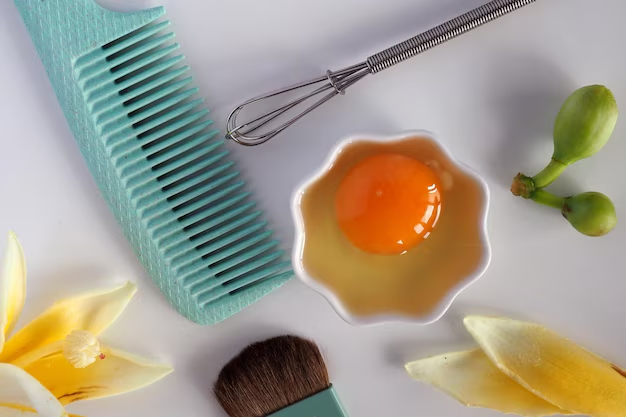
Additional Tips for Hair Loss Prevention
Stay Hydrated: Drinking enough water is important for a healthy scalp. Dehydration can lead to dryness and weaken hair roots. Aim to drink 8–10 glasses of water daily as part of your routine on how to prevent hair loss.
Avoid Smoking and Alcohol: Smoking and alcohol reduce blood circulation to the scalp, making hair follicles weaker over time. Limiting these habits is a helpful step if you’re focusing on how to prevent hair loss and maintain overall hair health.
Don’t Overwash Your Hair: Washing your hair too often can strip away its natural oils, leading to dryness and breakage. Washing 2–3 times a week helps keep your hair healthy and strong.
Use Silk Pillowcases: Switching to silk pillowcases can reduce friction on your hair while you sleep. This helps prevent breakage and keeps hair smoother overnight.
Get Regular Trims: Trimming your hair every 6–8 weeks helps remove split ends and reduce breakage, supporting longer, healthier growth.
When to Seek Medical Help
If your hair loss is sudden, severe, or comes with other symptoms like itching, scalp scaling, or constant fatigue, it’s important to seek medical advice. A dermatologist or trichologist can help identify underlying issues such as alopecia areata, thyroid problems, anemia, or hormonal imbalances. These conditions often need professional care along with natural methods. While learning how to prevent hair loss through diet and home remedies is helpful, medical treatment may be necessary in some cases. Understanding the cause is the first step in knowing how to prevent hair loss effectively and protect your hair’s long-term health.
Conclusion

Learning how to prevent hair loss is a crucial step toward achieving stronger, healthier hair. Hair loss can result from factors like stress, poor nutrition, hormonal changes, or damaging hair care habits. Fortunately, by incorporating natural remedies such as coconut oil, aloe vera, onion juice, fenugreek, and castor oil into your routine, you can effectively nourish the scalp and reduce hair fall.
Pairing these treatments with a well-balanced diet, stress management, and gentle hair practices enhances their effectiveness. Remember, consistency is key—natural remedies take time but offer lasting, chemical-free results. Most importantly, understanding how to prevent hair loss empowers you to take control of your hair health before it becomes a more serious concern.
If you experience ongoing or excessive shedding, don’t hesitate to consult a medical professional to rule out any underlying issues. Start today with these simple yet powerful strategies to naturally restore and maintain your hair’s strength and vitality.
FAQs
Q.1 What is the most effective natural remedy for hair loss ?
While several natural remedies work well, coconut oil massage and aloe vera gel are among the most effective due to their ability to nourish the scalp, reduce protein loss, and promote hair growth.
Q.2 How long does it take to see results from natural hair loss treatments ?
Natural remedies usually take consistent use for at least 4 to 8 weeks to show visible improvements in hair strength and reduced shedding.
Q.3 Can diet really impact hair loss ?
Yes, a balanced diet rich in vitamins, minerals, and proteins is essential to hair health. Nutrient deficiencies can lead to weakened hair follicles and increased hair loss.
Q.4 Is stress a major cause of hair loss ?
Absolutely. Stress triggers a condition called telogen effluvium, causing hair follicles to enter a resting phase and fall out prematurely. Managing stress is vital for prevention.
Q.5 When should I see a doctor for hair loss ?
If hair loss is sudden, severe, or accompanied by scalp itching, redness, or pain, it’s important to consult a dermatologist to identify underlying causes and receive appropriate treatment.
